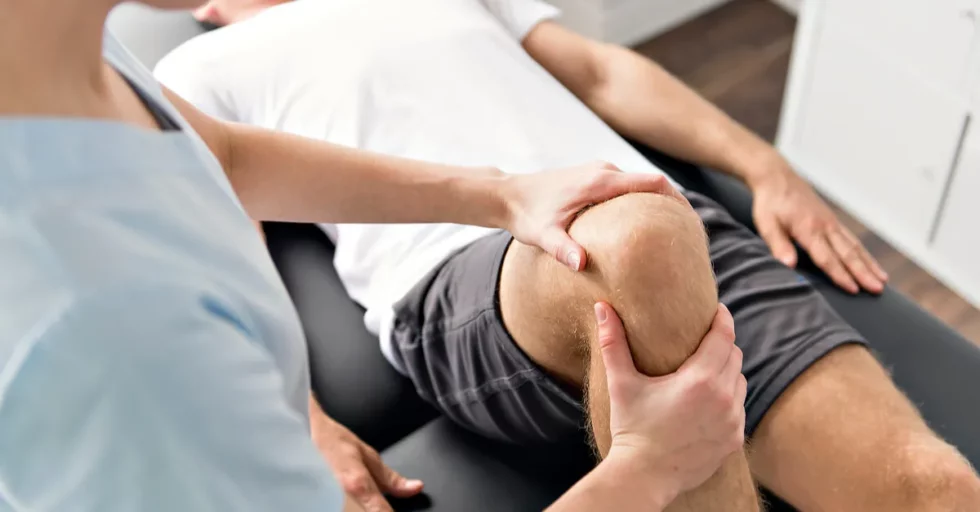Have you ever stood up from a chair, stretched your back, or bent your knees only to hear a loud “pop” or “crack”? For many people, joint cracking is a daily occurrence. While some find it satisfying, others worry that it might signal an underlying health issue. If you often ask yourself, “Why do my joints crack all the time?”, you’re not alone.
In this article, we’ll dive into the common causes of joint cracking, when it’s normal, when it may be a red flag, and what you can do about it. By the end, you’ll have a clearer understanding of what your body is telling you.
What Does It Mean When Joints Crack?
Joint cracking, also known as crepitus, refers to the popping, clicking, or cracking sounds you hear when moving your joints. This can happen in your:
- Knees when standing up
- Neck when turning your head
- Shoulders while stretching
- Fingers when you “crack your knuckles”
- Hips or ankles while walking
For most people, these noises are harmless. However, if cracking is accompanied by pain, swelling, or stiffness, it could indicate a deeper issue that requires medical attention.
Common Causes of Joint Cracking
Let’s explore why your joints might be making all those sounds:
1. Gas Bubbles in the Joints
One of the most common explanations for joint cracking is the release of gas bubbles in the synovial fluid (the fluid that lubricates your joints). When you stretch or bend, the pressure inside the joint changes, causing carbon dioxide or nitrogen bubbles to form and then collapse. This sudden release creates a popping sound—similar to opening a soda can.
This type of cracking is harmless and doesn’t damage the joints. That’s why cracking your knuckles, for example, doesn’t actually cause arthritis (a common myth).
2. Tendon and Ligament Movement
Tendons and ligaments are soft tissues that attach muscles to bones and stabilize your joints. Sometimes, when you move, these tissues snap slightly over bones or other tissues, creating a cracking or snapping sound.
This is especially common in the knee, ankle, or shoulder and usually doesn’t cause pain. But if the snapping becomes frequent and uncomfortable, it may indicate overuse or mild instability in the joint.
3. Age-Related Changes
As we age, our joints naturally go through wear and tear. The cartilage (a smooth cushion between bones) can thin out, and the surface becomes rougher. This can cause grinding or crackling noises, especially in the knees and spine.
While not always painful, persistent noises in older adults may be an early sign of osteoarthritis.
4. Injury or Overuse
If you’ve had a past injury such as a torn ligament, sprain, or dislocation, your joints may crack more often. Damage can change how bones, cartilage, and soft tissues move against each other.
Athletes or people who repeat the same movements daily (like typing, squatting, or lifting) may also experience more cracking due to overuse stress on the joints.
5. Arthritis and Joint Conditions
Sometimes, joint noises can be a symptom of a medical condition:
- Osteoarthritis – caused by cartilage breakdown, leading to grinding sounds and stiffness.
- Rheumatoid arthritis – an autoimmune condition that inflames the joints.
- Gout – buildup of uric acid crystals that irritate joints.
If your cracking is accompanied by pain, swelling, or decreased mobility, it’s wise to see a doctor.
6. Muscle Imbalance or Weakness
Weak muscles around a joint may allow extra movement, leading to snapping sounds. For example, weak hip or thigh muscles can cause knee instability, making the knee “pop” during exercise or walking.
Strengthening these muscles often reduces unnecessary cracking.
When Is Joint Cracking Harmless?
Joint cracking is generally considered normal if:
- It happens occasionally during movement
- There is no pain or swelling
- The joint feels stable and functions properly
- It provides relief when you stretch
In fact, some people find joint cracking satisfying because it reduces tension and gives a temporary sense of looseness.
When to Worry About Joint Cracking
While most joint sounds are not a sign of disease, you should pay attention if cracking comes with other symptoms. Seek medical advice if you experience:
- Persistent pain or stiffness
- Swelling around the joint
- Joints that lock, give way, or feel unstable
- Difficulty moving normally
- A recent injury followed by constant cracking
These signs may indicate arthritis, ligament injury, or other underlying problems that need treatment.
Can Cracking Joints Lead to Arthritis?
One of the biggest myths is that cracking your knuckles or joints causes arthritis. Research has shown that habitual knuckle cracking does not increase arthritis risk. However, frequent forceful cracking may cause mild soft tissue irritation or reduced grip strength in some cases.
So while cracking itself doesn’t directly damage joints, it’s still best not to overdo it.
How to Reduce Frequent Joint Cracking
If your joints are constantly cracking and you’d like to minimize it, here are some practical tips:
1. Stay Active
Movement helps keep joints lubricated and muscles strong. Low-impact exercises like swimming, cycling, or yoga can reduce stiffness and improve joint function.
2. Strengthen Muscles
Focus on exercises that build strength around major joints—hips, knees, shoulders, and spine. Stronger muscles mean more support, less instability, and fewer cracking sounds.
3. Stretch Regularly
Tight muscles and tendons can increase snapping sounds. Gentle stretching, especially after workouts, can help.
4. Maintain a Healthy Weight
Extra body weight puts more stress on joints like the knees, hips, and ankles, leading to more cracking and potential joint damage over time.
5. Use Proper Posture and Movement
Poor posture or repetitive strain can worsen joint noises. Pay attention to body alignment while sitting, standing, or exercising.
6. Stay Hydrated and Eat Joint-Friendly Foods
A diet rich in omega-3 fatty acids, vitamin D, and collagen-supporting nutrients helps keep cartilage and joints healthier. Drinking enough water also maintains joint lubrication.
Final Thoughts
Hearing your joints crack all the time can be surprising, but in most cases, it’s completely harmless. The popping noises are usually caused by gas bubbles, tendon movement, or minor age-related changes. However, if the cracking comes with pain, swelling, or mobility issues, it could be a sign of arthritis or an injury that needs attention.
So, the next time you ask yourself, “Why do my joints crack all the time?”, remember: most of the time, it’s nothing to worry about—but listening to your body and caring for your joints is always a smart move.
FAQs About Joint Cracking
1. Is it bad to crack my knuckles every day?
No, cracking your knuckles daily doesn’t cause arthritis. However, excessive force may cause mild irritation or reduced grip strength over time.
2. Why do my knees crack when I squat?
Knee cracking during squats is often due to gas bubbles, tight muscles, or tendons snapping over bone. If it’s painless, it’s harmless. Painful knee cracking may indicate cartilage wear or injury.
3. Can dehydration cause joints to crack more?
Yes, dehydration can reduce joint lubrication, making popping or grinding sounds more noticeable. Drinking enough water may help.
4. Should I see a doctor if my joints crack but don’t hurt?
If there’s no pain, swelling, or loss of mobility, you usually don’t need medical attention. However, if the cracking is constant and bothersome, a doctor can check for muscle imbalances or mild instability.
5. What exercises help reduce joint cracking?
Low-impact exercises like swimming, yoga, pilates, and cycling strengthen muscles and improve joint lubrication. Strength training that targets surrounding muscles also reduces unnecessary cracking.
Social Sharing
Your Content Goes Here
Latest Posts





